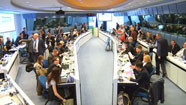On 5 April 2016 the JRC presented the interactive and collaborative online European Energy Efficiency Platform. This beta platform is conceived to fill the gap opened by scattered data and fragmented knowledge resulting from a rapidly growing energy efficiency market. It is expected to be both a one-stop shop for information retrieval and a meeting point for experts to exchange data and reduce redundant activities.
Energy Saving Obligations And Tradable White Certificates
With the increasing importance of establishing long-term synergies between end-use energy efficiency and energy market opening a number of EU Member States have embarked on implementing energy efficiency policy portfolios that consist of energy saving obligations imposed on some category of energy market operators eventually coupled with a trading system for energy efficiency measures resulting in certified energy savings (tradable white certificates, TWCs). The energy saving obligations are also known as supplier obligations, distributor obligations or utility obligations and, in the US context, energy efficiency resource standards. Obligations can be coupled with various trading options: trading of certified energy savings, trading of eligible measures without formal certification, or trading of obligations. The present study is carried out by the Joint Research Centre of the European Commission. The study:
- Provides a review of the experiences with implementing energy saving obligations and tradable white certificates as introduced in the European Union as of October 2009 and assesses the performance of supplier and distributor energy savings obligations and white certificate schemes in terms of results delivered (Section 2);
- Provides a set of conclusions on the impact and significance of different design options in implementing energy saving obligations and tradable white certificates for their performance (Section 5);
- Provides a set of recommendations on possible principles of harmonisation of energy saving obligations (Section 5);
- Presents the arguments for and against a Community-wide white certificate scheme (Section 3);
- Evaluates the options for linking white certificate and emission markets, in particular carbon trading (Section 4).
The report is provided in light of the Commission's assessment of white certificates, utility and supplier obligations, as stipulated in Article 4.5 of Directive 2006/32/EC on energy end-use efficiency and energy services (ESD). Article 4.5 of ESD specifies that the Commission shall, after having reviewed and reported on the second National Energy Efficiency Action Plans and the first three years of application of the Directive, examine whether it is appropriate to come forward with a proposal for a directive to further develop the market approach in energy efficiency improvements by means of white certificates. This work is an update and continuation of a previous report prepared at the JRC.





To quote this publication use the follonwing format: